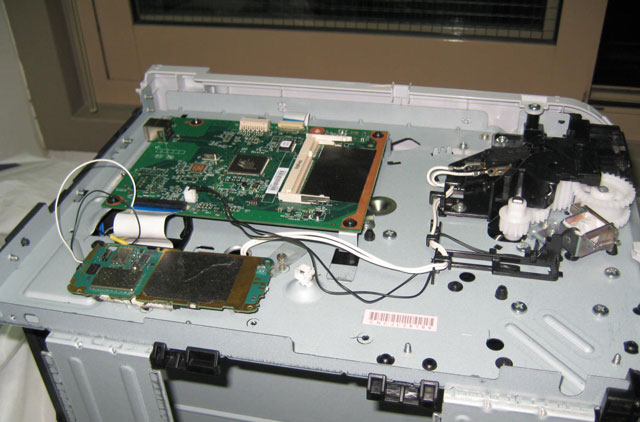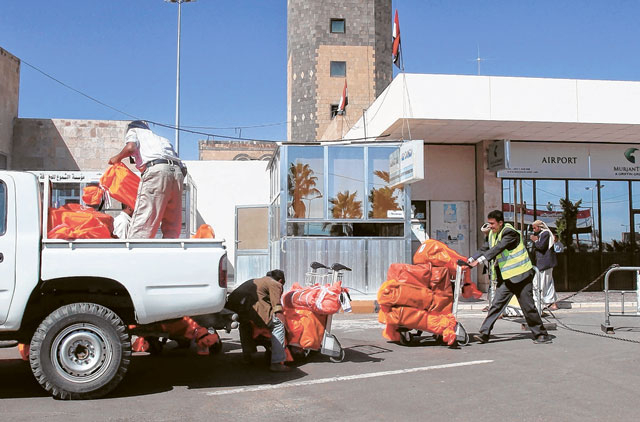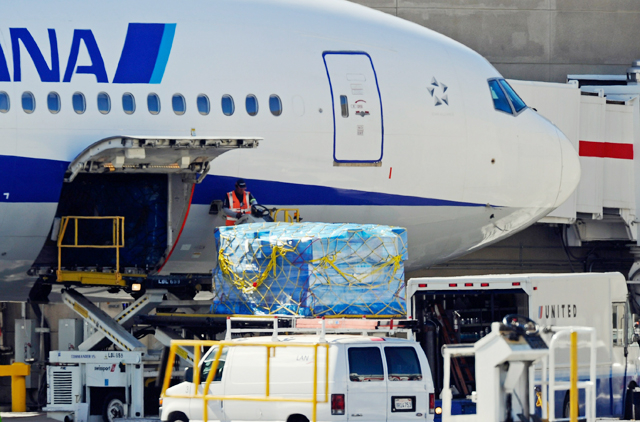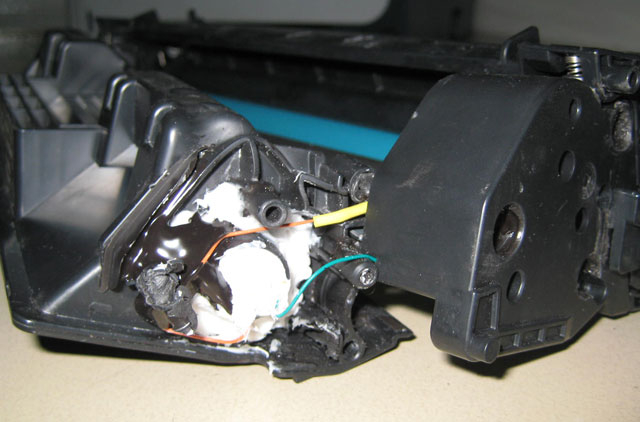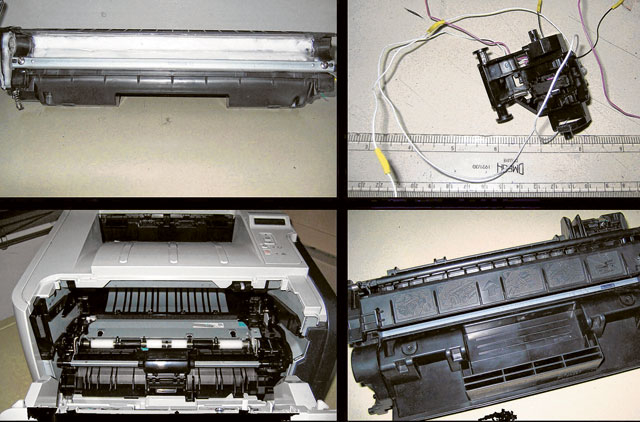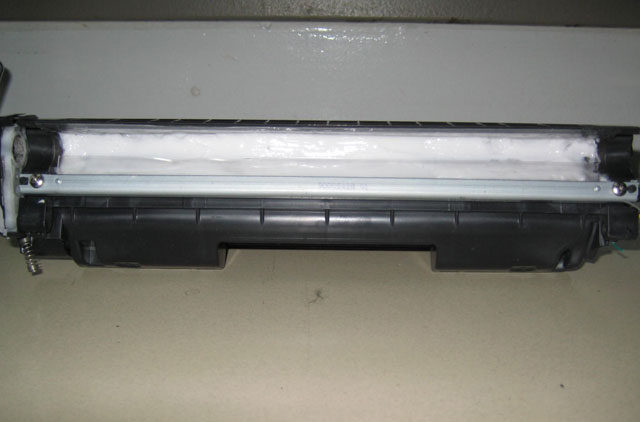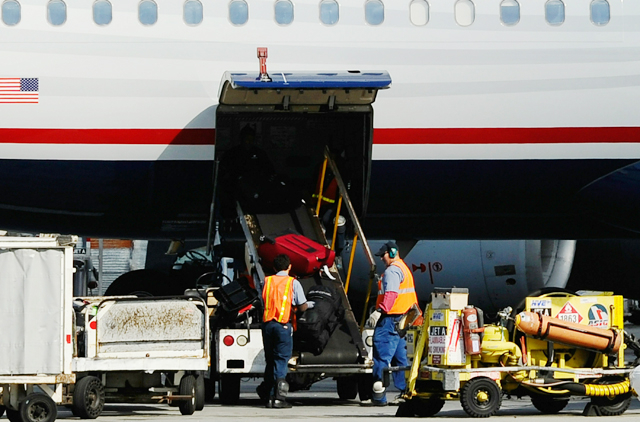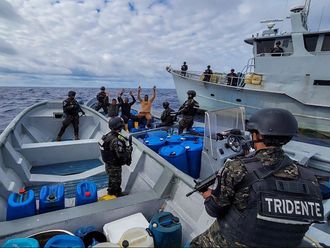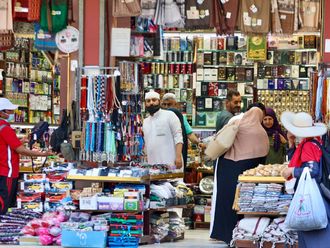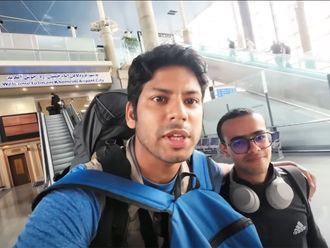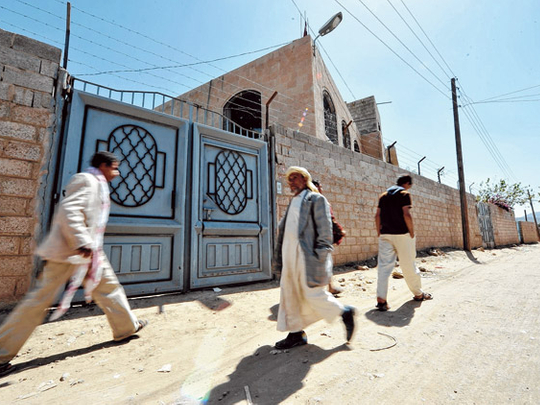
Dubai: A source from Qatar Airways on Sunday revealed details about a parcel bomb found in Dubai, while Yemeni security forces searched for suspects who posted parcel bombs on two US-bound flights after arresting a woman over an alleged Al Qaida plot that sparked a global air cargo alert.
A Qatar Airways spokesman said that a parcel carrying the mail bomb found in Dubai traveled on two separate passenger planes. The official spoke on condition of anonymity in line with the company's standing policies on conversations with the media.
The package arrived in Qatar Airways' hub in Doha, Qatar on a flight from the Yemeni capital Sana'a.
It was then shipped on a separate plane to Dubai in the UAE, where it was discovered by authorities.
The package contained explosives hidden in a printer cartridge and was headed for the United States. Al Qaida's offshoot in Yemen is suspected in the plot.
Search continues
In Yemen, authorities launched a wider search for more suspects believed to be linked to the Yemeni branch of Al Qaida and the mail bombs, according to media reports.
Also on Sunday, Yemeni investigators questioned a woman suspected of posting parcel bombs on two US-bound flights in an alleged Al Qaida plot that sparked a global air cargo security alert.
The medical student was detained on Saturday after being traced through a phone number on a receipt for the explosives-filled packages, which were found on freighter jets in Britain and Dubai on Friday, Yemeni officials said.
A string of countries further boosted their cargo security measures as British Prime Minister David Cameron said the bomb found in his country was apparently designed to blow the aircraft out of the sky.
"Yemeni security forces arrested a woman suspected of sending two parcel bombs," Yemen's defence ministry said after a house on the outskirts of the capital Sanaa was surrounded.
Radio 2: Dubai Police issue a statement. Malak Harb reports
Listen to Radio 2
President Ali Abdullah Saleh said security services "received information that a girl has sent the parcels from the two cargo companies," apparently referring to UPS and FedEx, the US firms through which the parcels were sent.
US officials have said the packages were addressed to synagogues in Chicago.
The woman is studying medicine at Sanaa university and her father is a petroleum engineer, a Yemeni security official told AFP.
She was held with her mother after her mobile phone number was found on the receipt for the parcel bombs, the official added.
Bomb plot raises doubts
In Dubai, a terrorism expert told Gulf News that authorities need to consider the possibility that the crash on September 3 of a UPS cargo jet flying from Dubai was caused by an explosive device similar to the ones found on Friday at the FedEx facility at Dubai airport and on a UPS plane at a UK airport.
"I think it would be very prudent to connect the dots in this incident," Dr Max Abrahms, a leading terrorism expert in the United States, told Gulf News.
"It seems like common sense now and clearly there are similarities between the crash and this latest incident."
Radio 2: Explosives found on US-bound plane. Malak Harb reports
Listen to Radio 2
Both bombs found on Friday were addressed to synagogues in the Chicago area, contained PETN — a highly explosive material which could have brought down the planes. One bomb arrived on Thursday and had to remain at Dubai International Airport for 24 hours. Dubai Police received a tip-off via an international call.
Dubai Police Chief Lieutenant-General Dahi Khalfan Tamim said Dubai Police succeeded in detecting the package while security authorities charged with carrying out security tasks on Western cargo companies failed.
The package arrived on Thursday and had to remain in the airport for 24 hours in what is known as a cooling series in order for the package to be searched, the General Civil Aviation Authority told Gulf News.
On Saturday night, a GCAA source said that the package which was discovered was shipped from Sana'a on a Qatar Airways plane heading to Doha and then forwarded from that flight to Dubai.
In Yemen, officials said they were examining 26 other seized packages.
US President Barack Obama has made it clear he suspects the involvement of Al Qaida in the Arabian Peninsula (AQAP) - the Yemen-based branch of Osama bin Laden's extremist network - and vowed to wipe out the organisation.
In Britain, Cameron said of the bomb discovered at East Midlands airport in central England that authorities "believe that the device was designed to go off on the airplane", possibly over British soil.
Dubai police said the parcel bomb found there bore the "hallmarks of Al Qaida". It involved the high explosive PETN hidden inside a computer printer with a circuit board and mobile phone SIM card attached.
Britain's Sunday Telegraph newspaper, quoting US intelligence sources, said a Saudi Al Qaida explosives expert based in Yemen, Ebrahim Hassan Al Asiri, is believed to be the mastermind behind the cargo planes plot.
Asiri's brother Abdullah attempted to kill the Saudi deputy interior minister in August 2009 in a suicide attack that reportedly involved explosives concealed inside his own body.
The White House has said that Saudi Arabia tipped off Washington to the latest bomb plot.
Tighter security measures
German Interior Minister Thomas de Maiziere announced late on Saturday that the country would no longer accept air freight from Yemen, after it emerged that the package found in Britain had also passed through Cologne airport.
German Chancellor Angela Merkel, in Britain on an informal visit, was due to discuss counter-terrorism cooperation during talks with Cameron on Sunday, Downing Street said.
France's civil aviation authority also announced Saturday it had suspended air freight from Yemen. Australia said it would screen all air cargo from Dubai and Doha.
In the United States, where Obama faces critical mid-term elections on Tuesday, the Department of Homeland Security said it had boosted security measures.
Experts said the bomb plot highlighted the gaps in air cargo security but also the growing innovation of militant groups.
"This is the first time that a terrorist group has used a US air freight company to transport a parcel containing explosives and a detonator," Jean-Charles Brisard, a global consultant on terror groups, told AFP.
With inputs from Mick O'Reilly Deputy Managing Editor, Sara Janahi and Alice Johnson, Staff Reporters, Nasser Arrabyee, Correspondent, and agencies.


